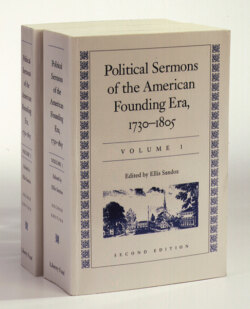Читать книгу Political Sermons of the American Founding Era: 1730–1805 - Группа авторов - Страница 40
На сайте Литреса книга снята с продажи.
ОглавлениеJONATHAN MAYHEW (1720–1766). One of the celebrated names associated with early American opposition to British tyranny, Mayhew graduated from Harvard College in 1744 and received an S.T.D. from the University of Aberdeen, Scotland, in 1749. He was pastor of Boston’s West Church from 1747, a position he retained for the remainder of his short life. According to Frederick L. Weis, Mayhew was regarded by some as the best preacher in the New England of his day (The Colonial Clergy and the Colonial Churches of New England [1936]).
A Unitarian, Mayhew rejected Trinitarian views as early as 1755 and based his beliefs on his own reading of the Bible, not on Calvin’s. He combatted Anglican evangelism in America through the Society for the Propagation of the Gospel in Foreign Parts and the looming installation of an Anglican bishop in America, which early on epitomized the tyranny threatened by London and Canterbury. His political views were imbued with the thoughts of Milton, Locke, and Sidney. He preached against “popish idolatry” in his Dudleian lecture at Harvard in 1765.
The Snare Broken, a “thanksgiving discourse,” was preached by Mayhew in his own pulpit on May 23, 1766, less than two months before he died at the age of forty-six. Occasioned by Parliament’s repeal of the Stamp Act, the sermon conveys a warning to William Pitt and other English readers that taking self-government into private hands in some circumstances must surely proceed from “self-preservation, being a great and primary law of nature.”
